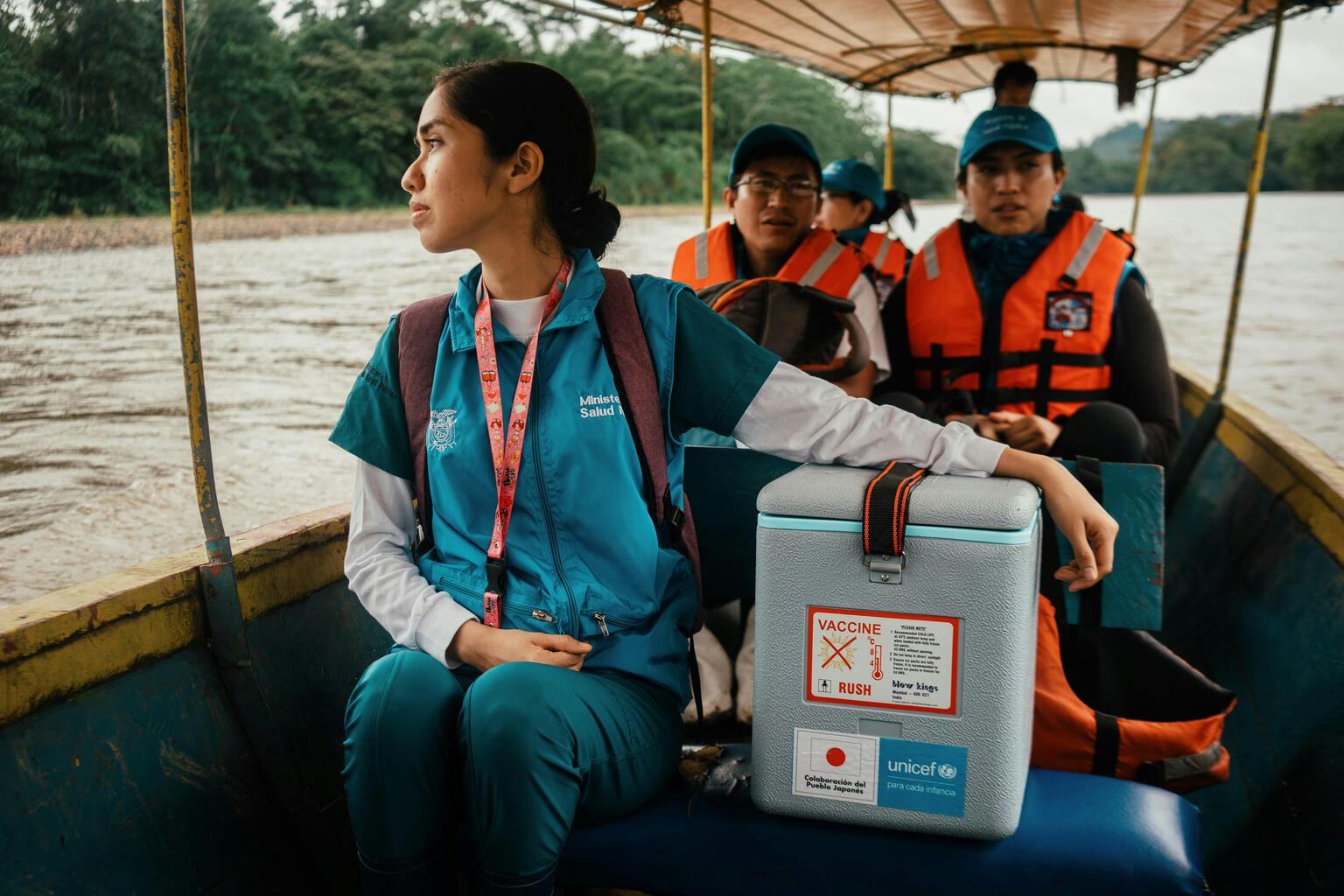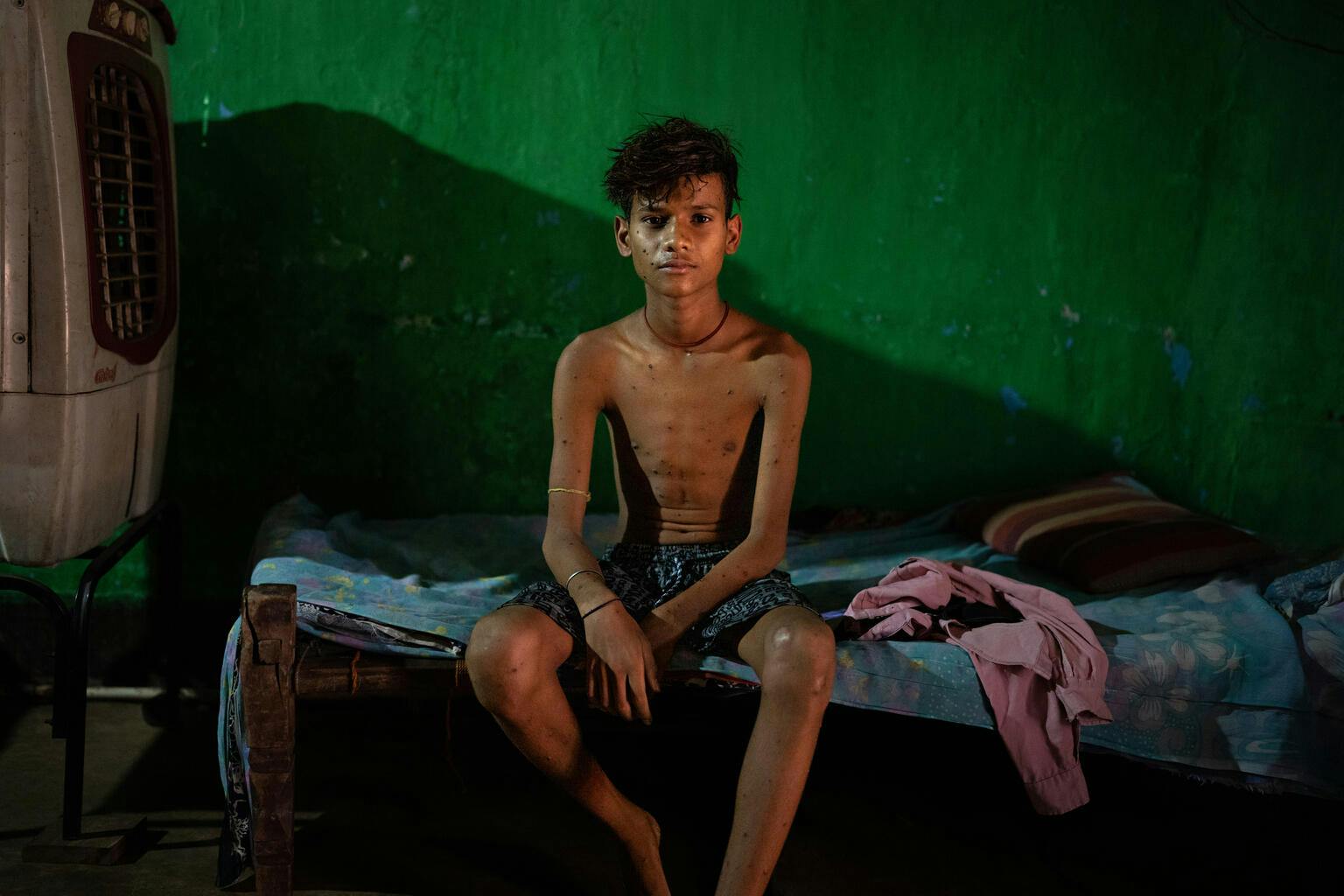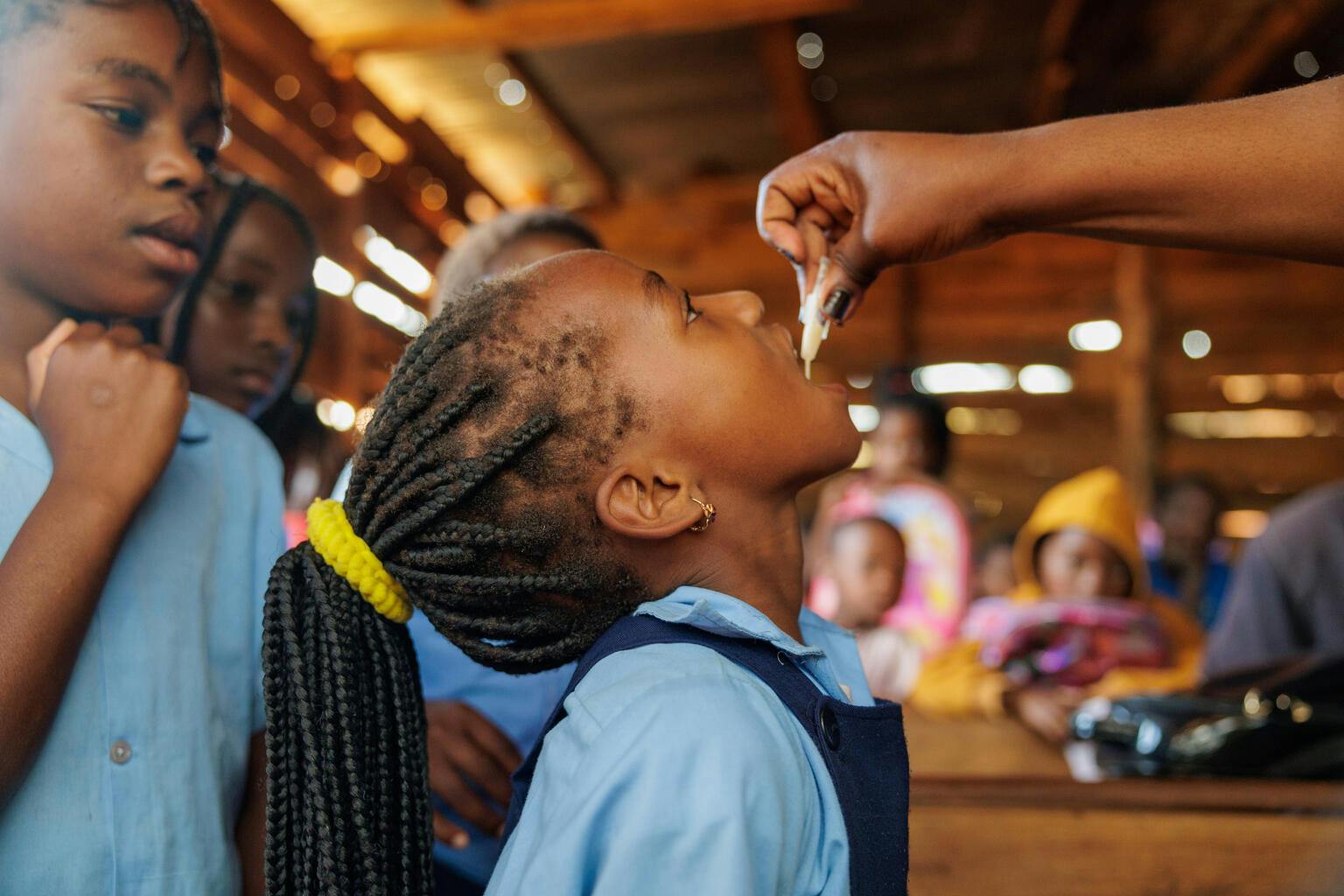Last updated July 22, 2024
Written by: Elizabeth Thrush, Senior Polio & Immunization Advocacy Officer, United Nations Foundation

As countries worldwide grapple with the challenges of ensuring universal immunization coverage, the UN Foundation is launching an Outbreak Prevention and Preparedness Fund. This Fund, which will pool contributions from multiple donors, is set to make a significant impact on global health by supporting efforts that reinforce national immunization systems and allow countries to better prevent, detect, and respond to vaccine-preventable diseases (VPDs).
The urgency of this initiative is underscored by recent WHO and UNICEF data, which reveal a stark reality. In 2023, 16% of infants worldwide did not receive all three doses of the diphtheria-tetanus-pertussis (DTP) vaccine, a key marker for global immunization coverage. Even more alarming, 14.5 million children did not receive a single dose of any vaccine, classifying them as “zero-dose.” More than half of unvaccinated children live in the 31 countries with fragile, conflict-affected, and vulnerable settings, where children are especially vulnerable to preventable diseases because of disruptions and lack of access to security, nutrition, and health services.
“The latest trends demonstrate that many countries continue to miss far too many children,” in a joint press release UNICEF Executive Director Catherine Russell said. “Closing the immunization gap requires a global effort, with governments, partners, and local leaders investing in primary healthcare and community workers to ensure every child gets vaccinated and that overall healthcare is strengthened.”
The UN Foundation’s new pooled fund is designed to address these challenges, with a particular emphasis on supporting middle-income countries (MICs) that are often ineligible for existing funding mechanisms. This focus is crucial, as a recent WHO report highlights that each year, 66 million children – half of the global birth cohort – are born in these countries, and one in three of these children do not receive all the vaccines they need.
The consequences of these gaps in immunization coverage are severe. In the past five years, 103 countries, home to about three-quarters of the world’s infants, have faced measles outbreaks, mainly due to low vaccine coverage levels of 80% or less.

“Deadly measles outbreaks show us the urgency of closing immunization gaps,” Dr. Tedros Adhanom Ghebreyesus, WHO Director-General, said, emphasizing the urgency of the situation. “Where gaps in immunity exist within communities, measles is often the first disease to spread and it targets the most vulnerable first. When children are not reached through strong immunization programmes, everyone remains at risk.”
To address these challenges, the UN Foundation has set an ambitious goal of raising $15 million over the next two years. The Foundation is actively seeking new donors to join the Fund.
This initiative will support WHO and UNICEF to implement a range of activities under two key categories:
This dual focus ensures both rapid response to current challenges and long-term preparedness for future health threats. Increasing immunization coverage is also one of the most cost-effective strategies for preventing morbidity and mortality and, therefore, a critical tool for decreasing the development of anti-microbial resistance (AMR).

The success of this initiative hinges on the support of a diverse donor base. The funding model integrates various donor contributions, allowing for both targeted interventions and broader health system strengthening activities. This diversified approach enables the initiative to address both immediate needs and long-term capacity building in target countries.
“The generous contributions from our initial donors have provided a strong foundation for this vital initiative,” said Dr. Ahmed Ogwell, Vice President for Global Health Strategy at the UN Foundation. “However, to truly bridge the immunization gap and protect even more vulnerable children worldwide, we invite more partners to join us in this critical effort.”
Organizations interested in contributing to this life-saving effort are encouraged to reach out to OutbreakFund@unfoundation.org.
Elizabeth Thrush is the Senior Officer for Polio and Immunization Advocacy on the Global Health team at the United Nations Foundation. In this role, she provides advocacy support for UN Foundation’s polio and broader immunization portfolios. Prior to joining the UN Foundation, Elizabeth worked on the immunization team at the Pan American Health Organization, Regional Office for the Americas of the World Health Organization (PAHO/WHO), providing support for the countries of the Americas on immunization and surveillance activities for polio and other vaccine preventable diseases. Elizabeth holds a Master of Public Health (MPH) degree focused on global health and behavior change communication from The George Washington University.
To get the latest Global Health news from experts like Elizabeth, subscribe to our monthly newsletter.